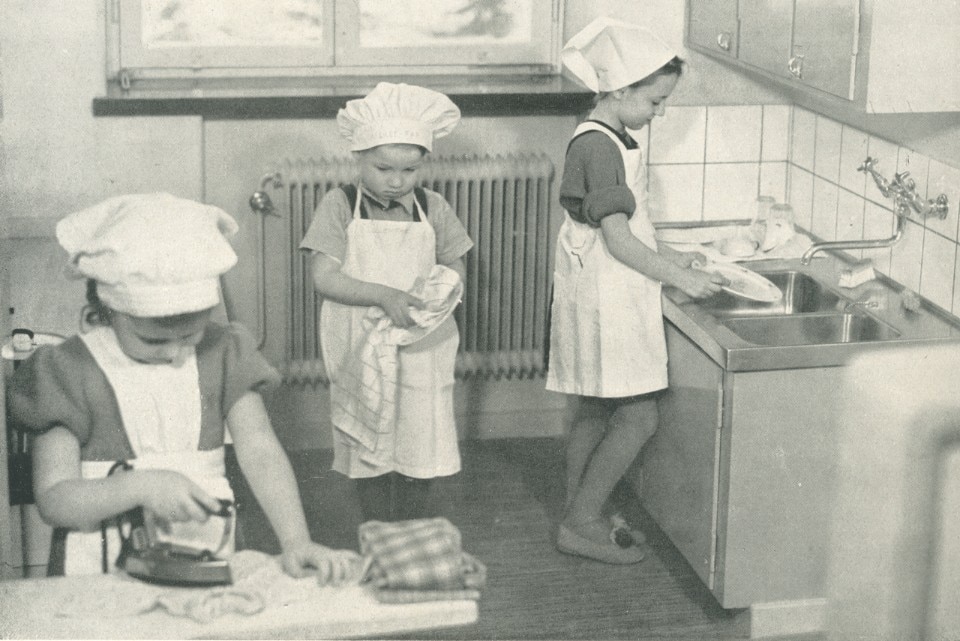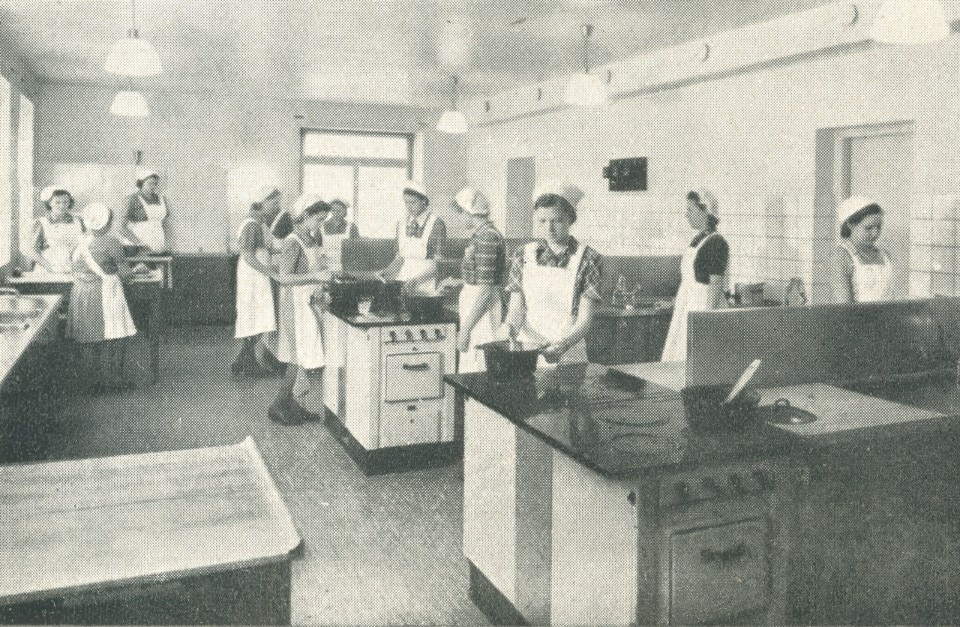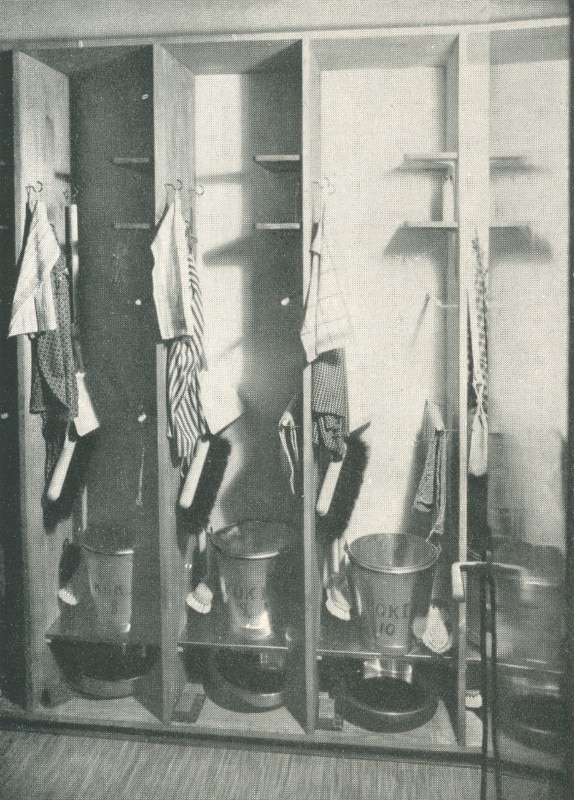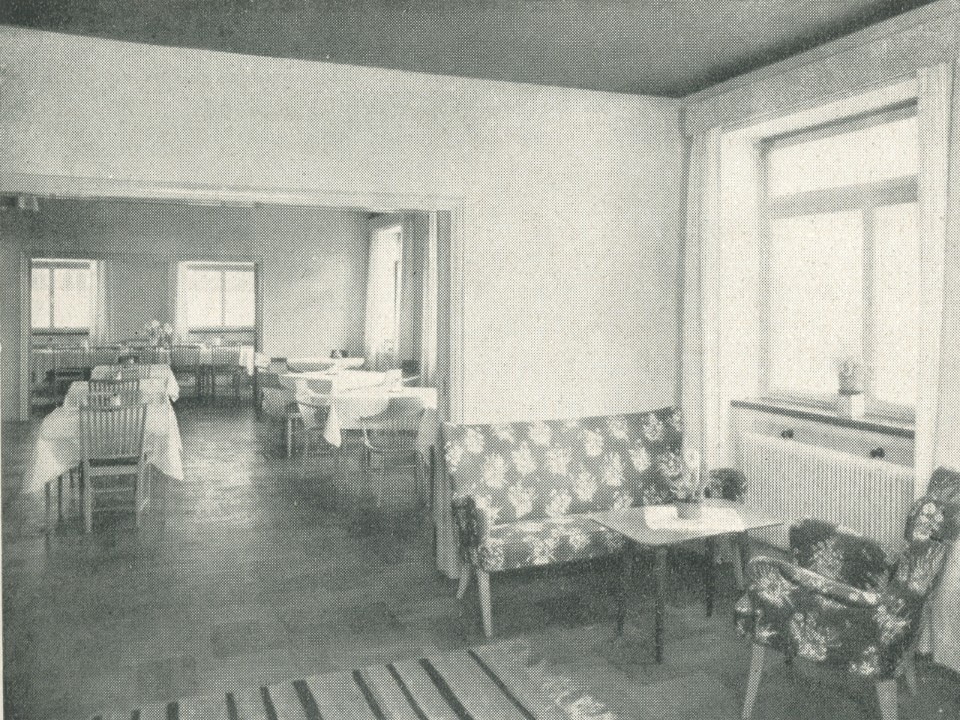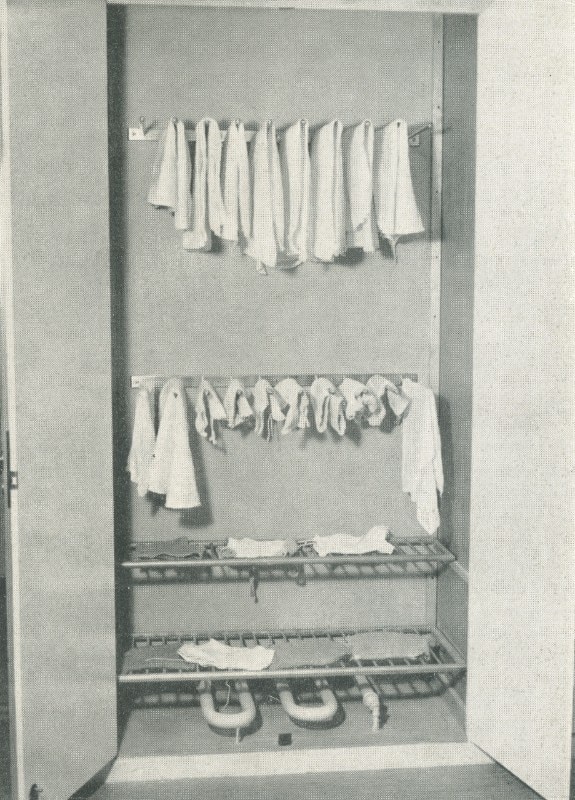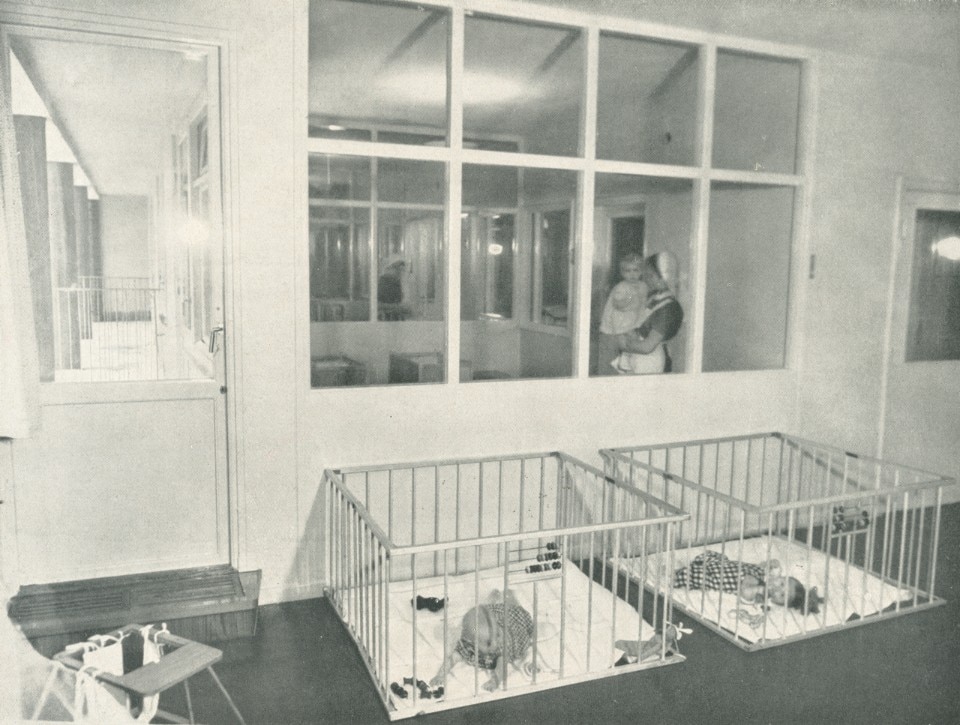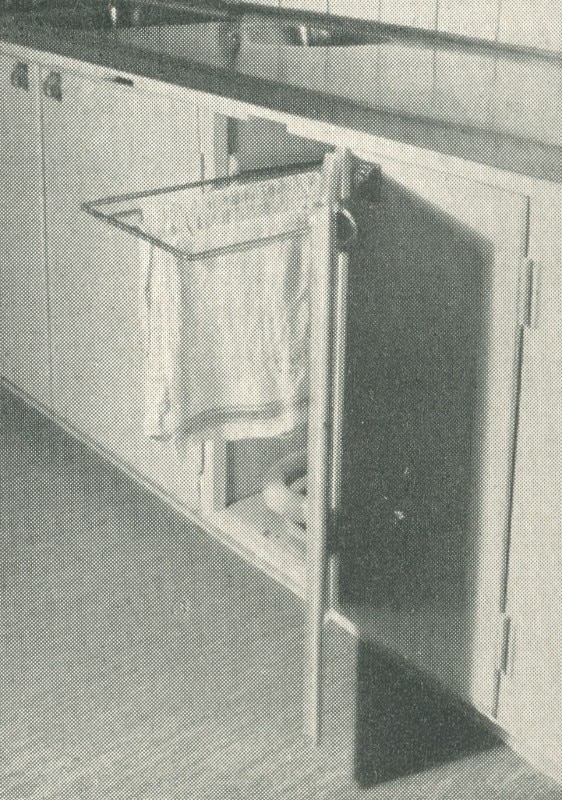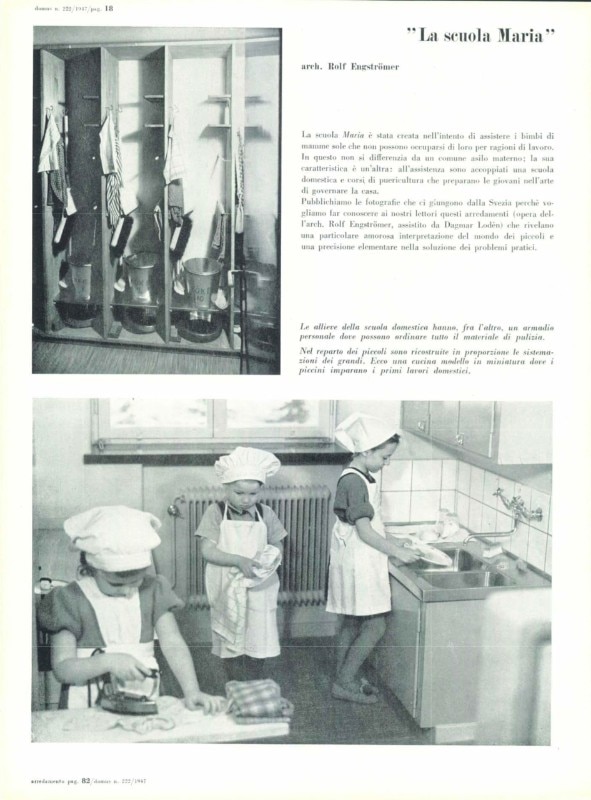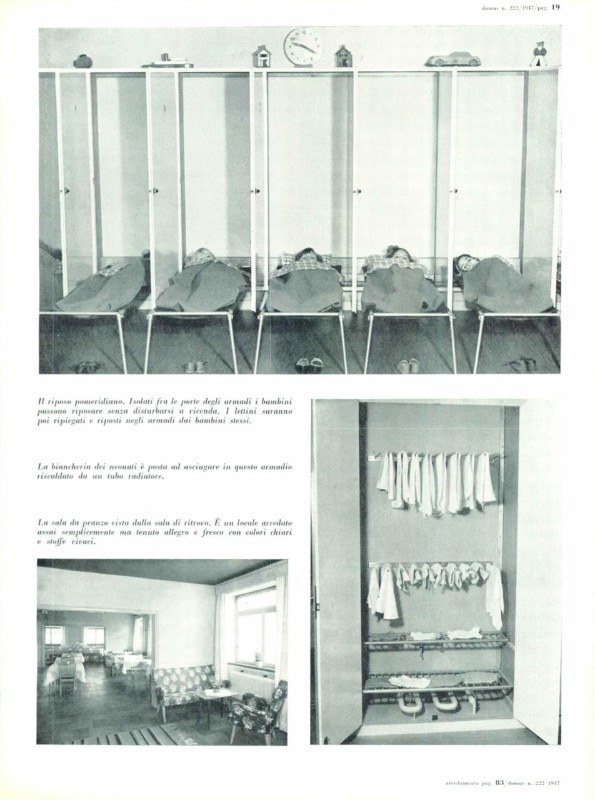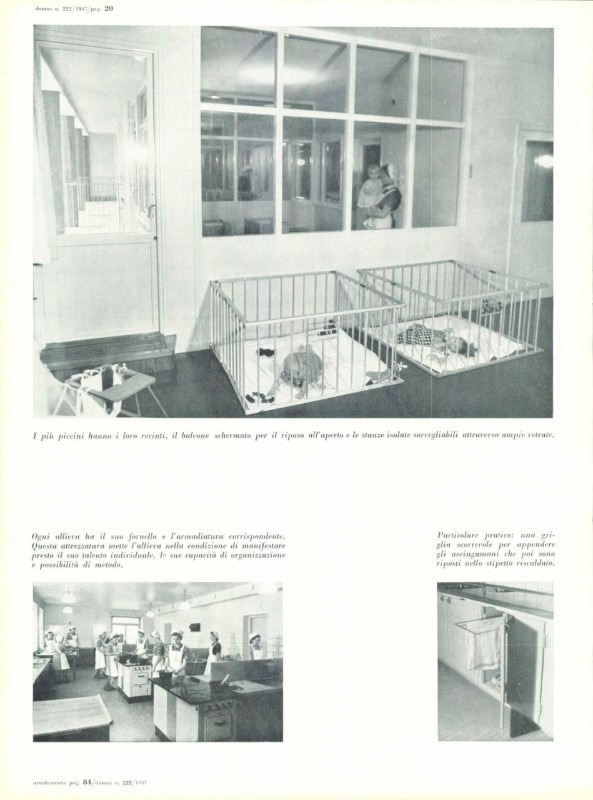Issue 222 from September 1947, directed by Ernesto N. Rogers, was entirely dedicated to interiors, or rather, as the magazine stated, to furnishings. Among the numerous designs, each accompanied with a very brief description, was Scuola Maria, designed by the Swedish architect Rolf Engströmer. A school for home economics and paedology “which prepares the youngsters in the art of governing a household”, including a nursery for the children of working mothers. This in fact was the first apparent contradiction: on the one hand a service was offered to working women, while on the other the idea was promoted that little girls and young women prepared for dual working roles, mother-housewives and working women. But this was no contradiction.
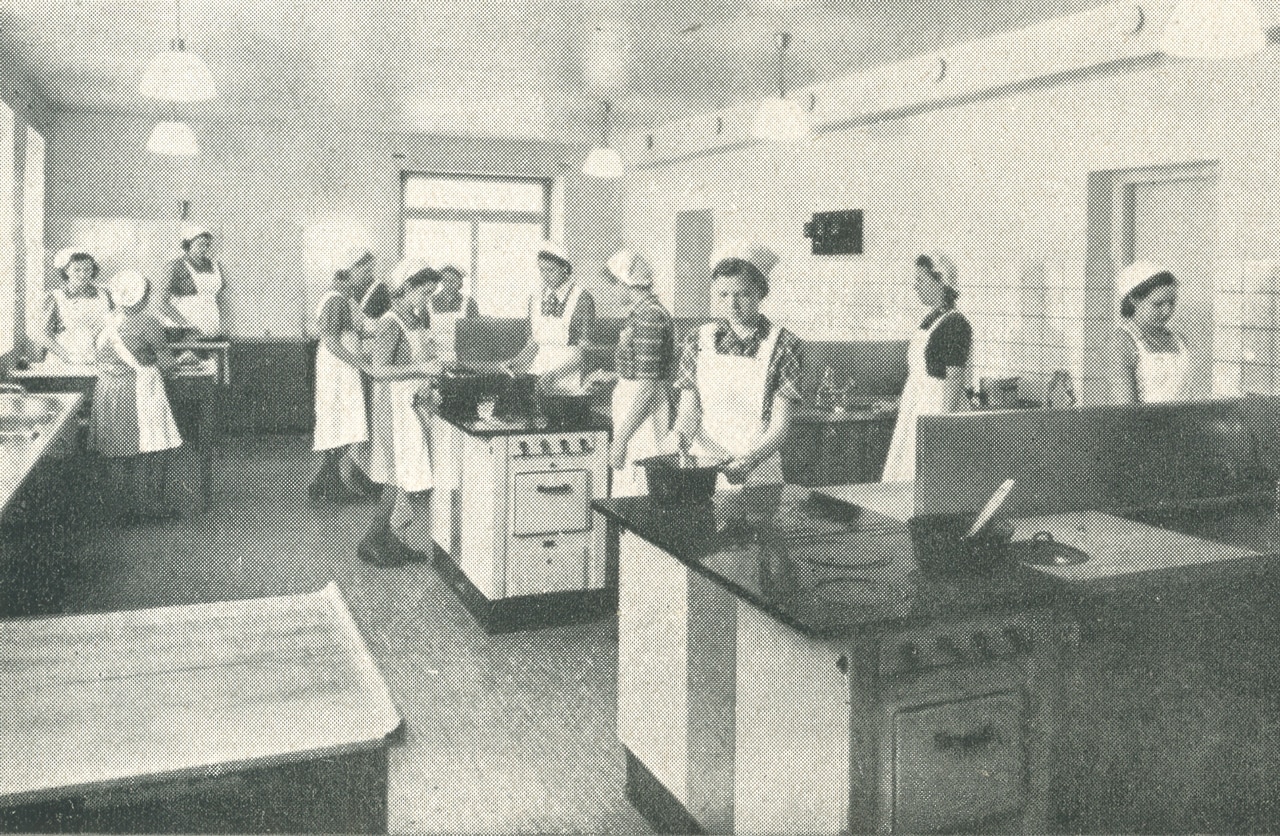
 View gallery
View gallery
So, who is Maria? In the educational programme, she appears to be the Christian Maria, above all a mother, providing for and protecting the family. That traditional figure where the woman is subordinate, and her role lies within the home, a figure which those with nostalgia would like to see return in the 21st century. But in the design of objects, Maria could be Montessori, with her extraordinary teaching methods which, by placing the children at the centre, considers them as a complete entity, and thus maintains that in order to take advantage of their full potential, they need to have access to objects and spaces that are made to measure, simple, functional and aesthetically pleasing.
The pedagogical ideas of Maria Montessori in Social-Democratic Sweden, and in general in Scandinavian countries, has taken form, evolving over the years towards a form of gender equality which sees both sexes learning to prepare meals, clean, iron and tidy up. Today’s schools have carefully-designed dedicated spaces which are used by the children to learn everything there is to know about “home economics”. The point is not only that of a fair division of tasks between the sexes, but also an active attitude towards the management of school time which promotes the consideration of the school in its physical dimension as a place which also, and above all, belongs to the pupils themselves.


